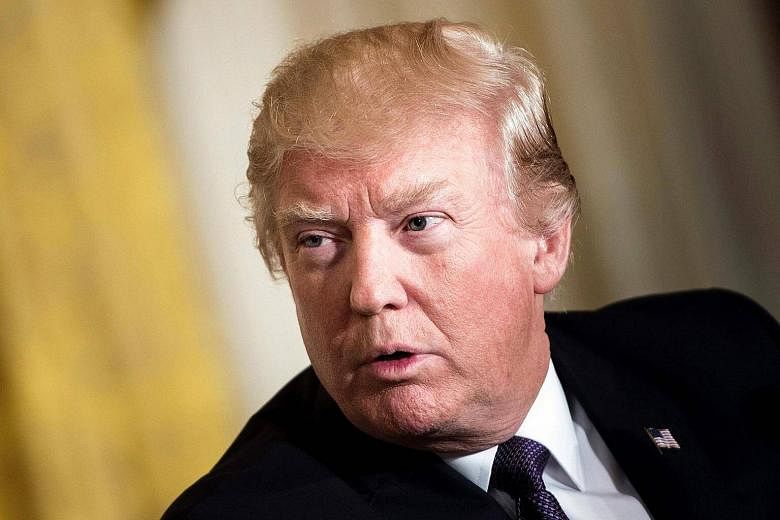WASHINGTON - Within hours on Wednesday (April 12), President Donald Trump abandoned his positions on six issues that were key to his election campaign.
His most dramatic u-turn was on Nato, which he declared is "no longer obsolete" during a joint news conference with visiting Nato Secretary General Jens Stoltenberg.
China is also not a currency manipulator, he said in another significant shift during an interview with the Wall Street Journal (WSJ).
And for the first time, Mr Trump said US-Russia relationship is at an all-time low.
Here's a quick look at the six issues:
1. NATO
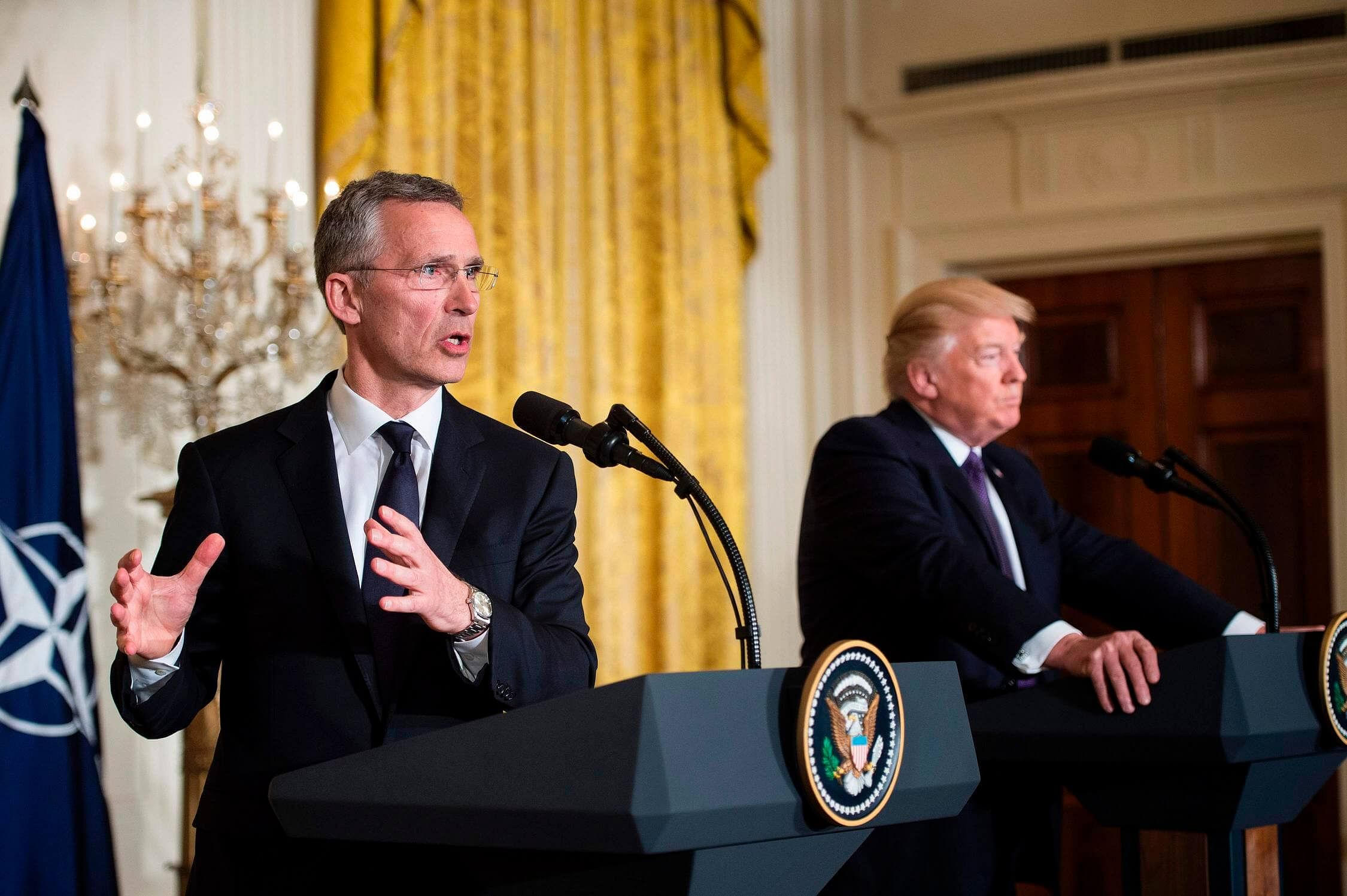
For more than a year, Mr Trump said the military alliance was outdated and costing the United States too much money. He suggested replacing it with an alternative organisation focusing on counter-terrorism and repeatedly used the word "obsolete" to describe Nato. As recently as Jan 15, he said in an interview with the Times of London and Germany's Bild that Nato was "obsolete because it wasn't taking care of terror" and that critics of his comments had "started saying Trump is right."
During the joint press conference with Mr Stoltenberg on Wednesday, Mr Trump said his past comments had led the alliance to make changes that satisfied his concerns. "I complained about that a long time ago, and they made a change - and now they do fight terrorism," he said.
"I said it was obsolete. It's no longer obsolete," he added.
It is unclear what changes the president was referring to. Nato did add a new assistant secretary general position that focused on intelligence and security in July 2016, but experts said the change did not mark a major shift for the organisation and that Nato has long addressed concerns of terrorism.
2. CHINA
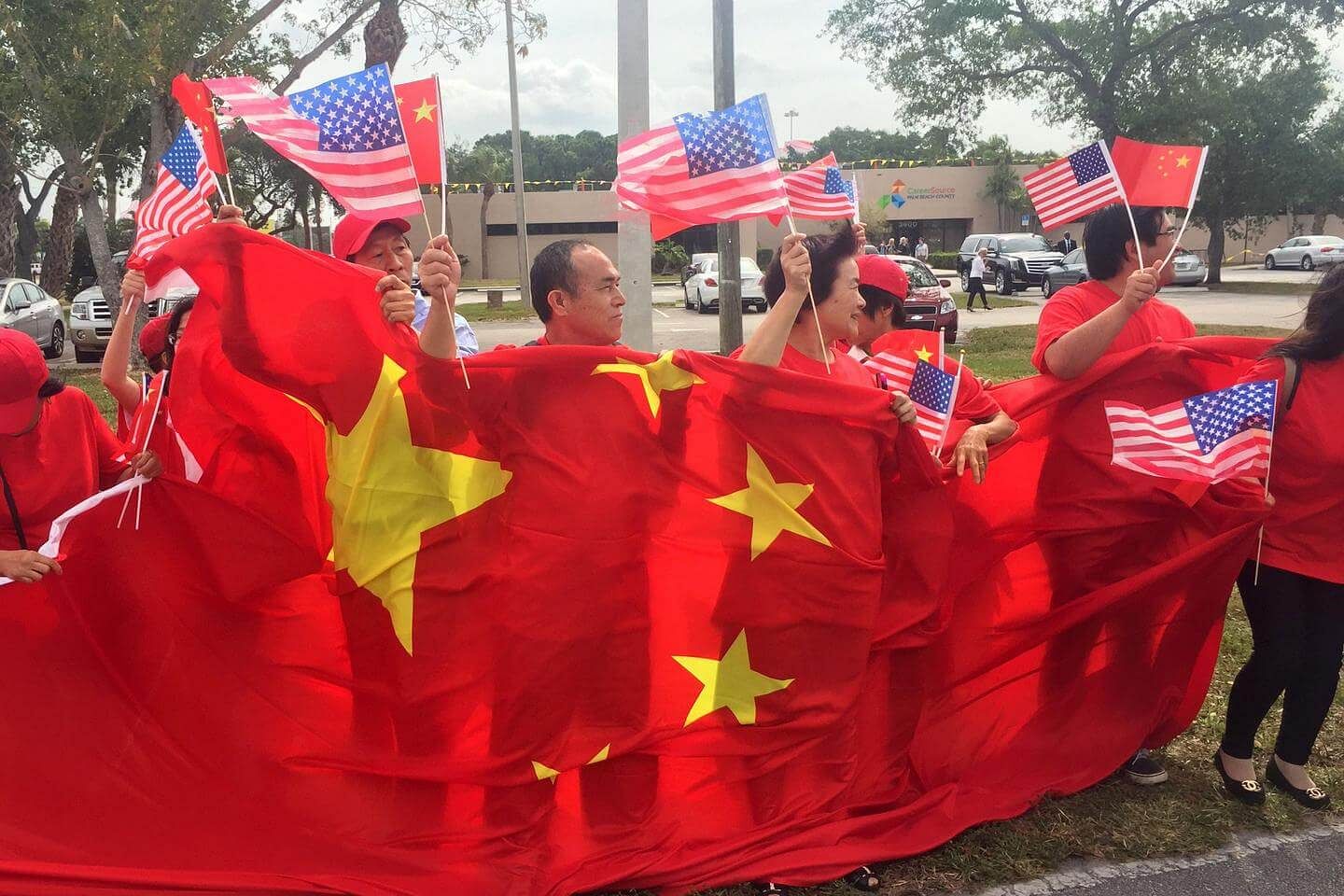
During the presidential campaign, Mr Trump promised to label China a currency manipulator on his first day in office. On the 83rd day, he told the WSJ that Beijing is not manipulating its currency."They're not currency manipulators," he said.
Countries can manipulate the currency in order to make their exports cheaper and give their factories and workers an advantage. When countries buy up foreign currencies and sell their own, the price of their own currencies on the global market falls, allowing their exports to trade at a discount.
Most economists agreed that China manipulated its currency in the past but it has not continued the practice. This is also former president Barack Obama's view. Although Mr Obama, like Mr Trump, had accused China of manipulation when he was a presidential candidate, his administration never formally declared China a manipulator.
The Treasury Department is scheduled to release a report on currency manipulation in the coming days.
3. RUSSIA
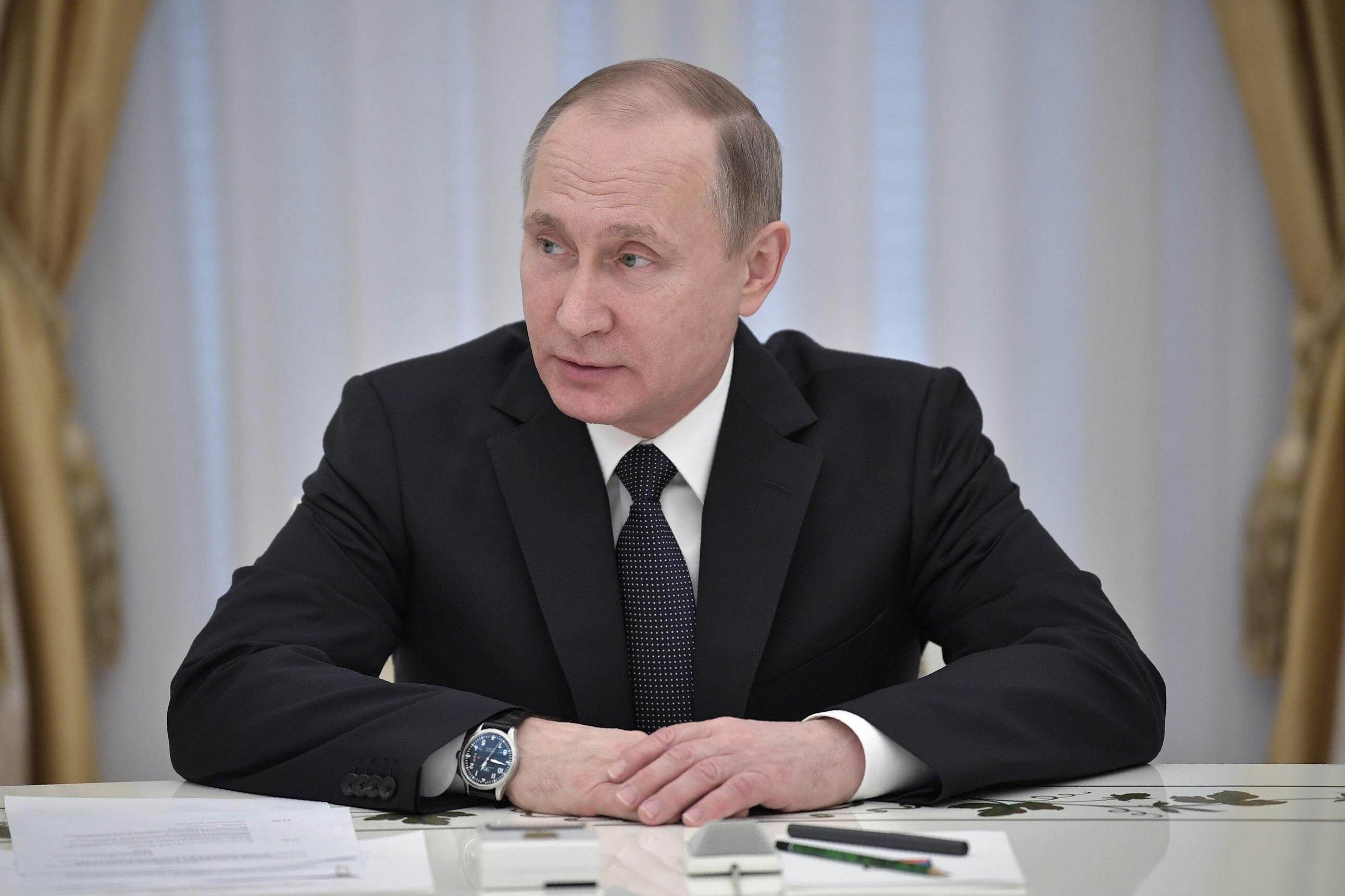
Mr Trump said he has growing concerns about Russia's support of Syrian President Bashar al-Assad and questioned Moscow's role in a suspected chemical attack in Syria's rebel-held Khan Sheikhun town on April 4. That attack killed at least 87 people including many children.
He said it was "certainly possible" that President Vladimir Putin knew about the attack, indicating that Russian officials were present at the Syrian airbase which the US military struck on April 6. "I would like to think that they didn't know, but certainly they could have. They were there. So we'll find out," he said.
"We may be at an all-time low in terms of a relationship with Russia," Mr Trump said. "Right now we are not getting along with Russia at all," he said in stark tones at odds with his former vows to ease the chill in ties with the US nuclear foe.
While criticising Russia, Mr Trump said he and Mr Xi Jinping had bonded during the Chinese president's visit to the Mar-a-Lago resort in Florida last week, where they dined together with their wives and held talks.
"I think we had a very good chemistry together. I think he wants to help us with North Korea. We talked trade," Mr Trump said. "I was very impressed with President Xi and I think he means well."
The two leaders followed up on the summit late on Tuesday with what the White House called a "very productive" telephone call.
Before the summit, Mr Trump had predicted a very difficult meeting with Mr Xi over issues like North Korea and trade.
4. SYRIA

Mr Trump said it was time to end Syria's "brutal" civil war, as he branded Mr Assad a "butcher". He called on Nato allies to "work together to resolve the disaster" in Syria and thanked them for condemning the suspected chemical attack in Khan Sheikhun town.
"Vicious slaughter of innocent civilians with chemical weapons including the barbaric killing of small and helpless children and babies must be forcefully rejected by any nation that values human life," he said.
"That's a butcher. So I felt we had to do something about it. I have absolutely no doubt we did the right thing, and it was very, very successfully done," he added. "It is time to end this brutal civil war, defeat terrorists and allow refugees to return home."
His comments came just days after the Trump administration seemed to have accepted an ultra-realist approach that would allow the Syrian president to remain in control of his shattered nation.
5. JANET YELLEN
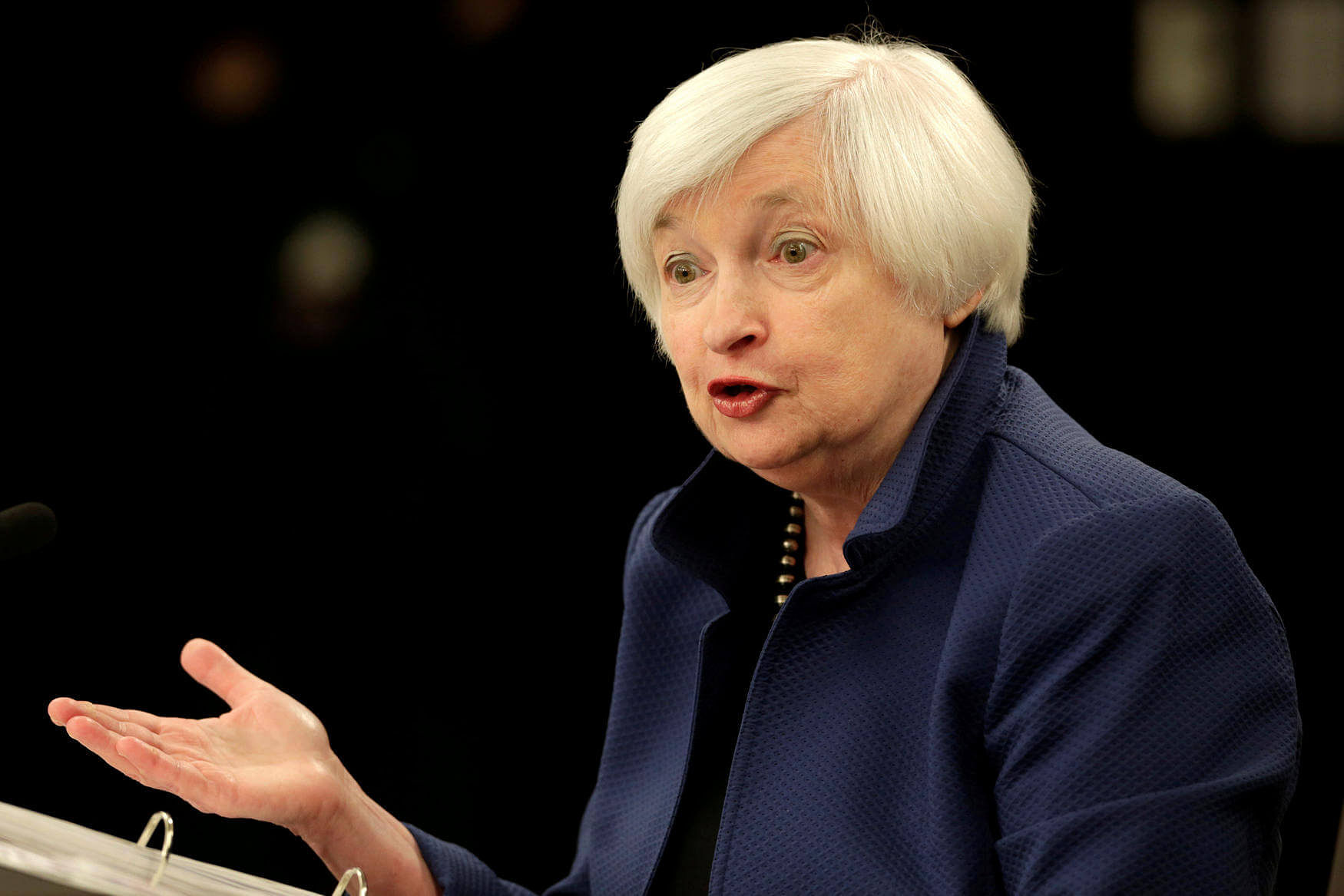
Perhaps the most consequential endorsement Mr Trump gave Mr Obama in the interview with WSJ was a compliment to Ms Janet Yellen, whom Mr Obama nominated to be chair of the Federal Reserve.
During the campaign, Mr Trump had accused Ms Yellen of manipulating interest rates to help Mr Obama politically, as lower rates boosted economic growth. He suggested to the Washington Post that Ms Yellen and her colleagues' policy of maintaining interest rates near zero could inflate a "bubble where you go into a very massive recession."
But when asked by the WSJ on Wednesday whether he would look for a replacement for Ms Yellen when her term expires next year, the president suggested that she might be allowed to stay on.
"I like her. I respect her," he said. "It's very early."
6. EXPORT-IMPORT BANK
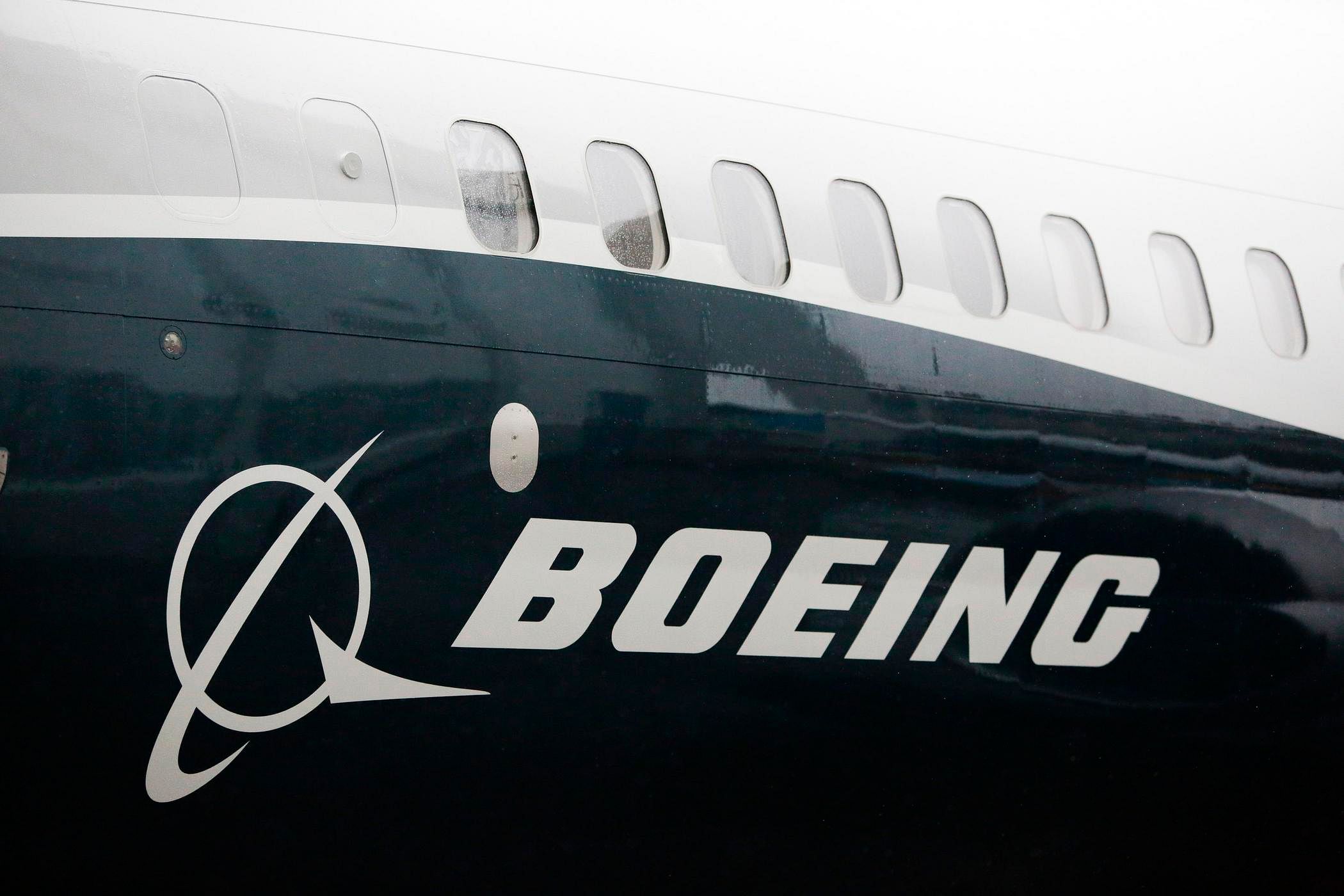
Mr Trump also told the WSJ he supports the Export-Import Bank, an agency that subsidises US exports and is detested by conservative lawmakers. The right points out that much of the bank's aid goes to large corporations such as Boeing, which conservatives say do not need help from the government.
During the presidential campaign, Mr Trump initially opposed the bank, calling it "feather bedding." He said in 2015: "I don't like it because I don't think it's necessary". He said "the bank mainly helps a few companies - and these are companies that can do very well without it."
Later in the campaign though, Mr Trump seemed to have moderated that opposition, and two Democratic senators said earlier this year that the president told them he had come around to supporting the agency.
Mr Trump acknowledged his position had changed in his interview with the WSJ. "It turns out that, first of all, lots of small companies are really helped," he said. "Instinctively, you would say 'Isn't that a ridiculous thing.' ... But actually, it's a very good thing."
Mr Obama and many mainstream Republicans also supported the Export-Import Bank, arguing that the United States must compete with other countries that have similar agencies for promoting exports.
SOURCES: REUTERS, WASHINGTON POST, AFP, CNN
